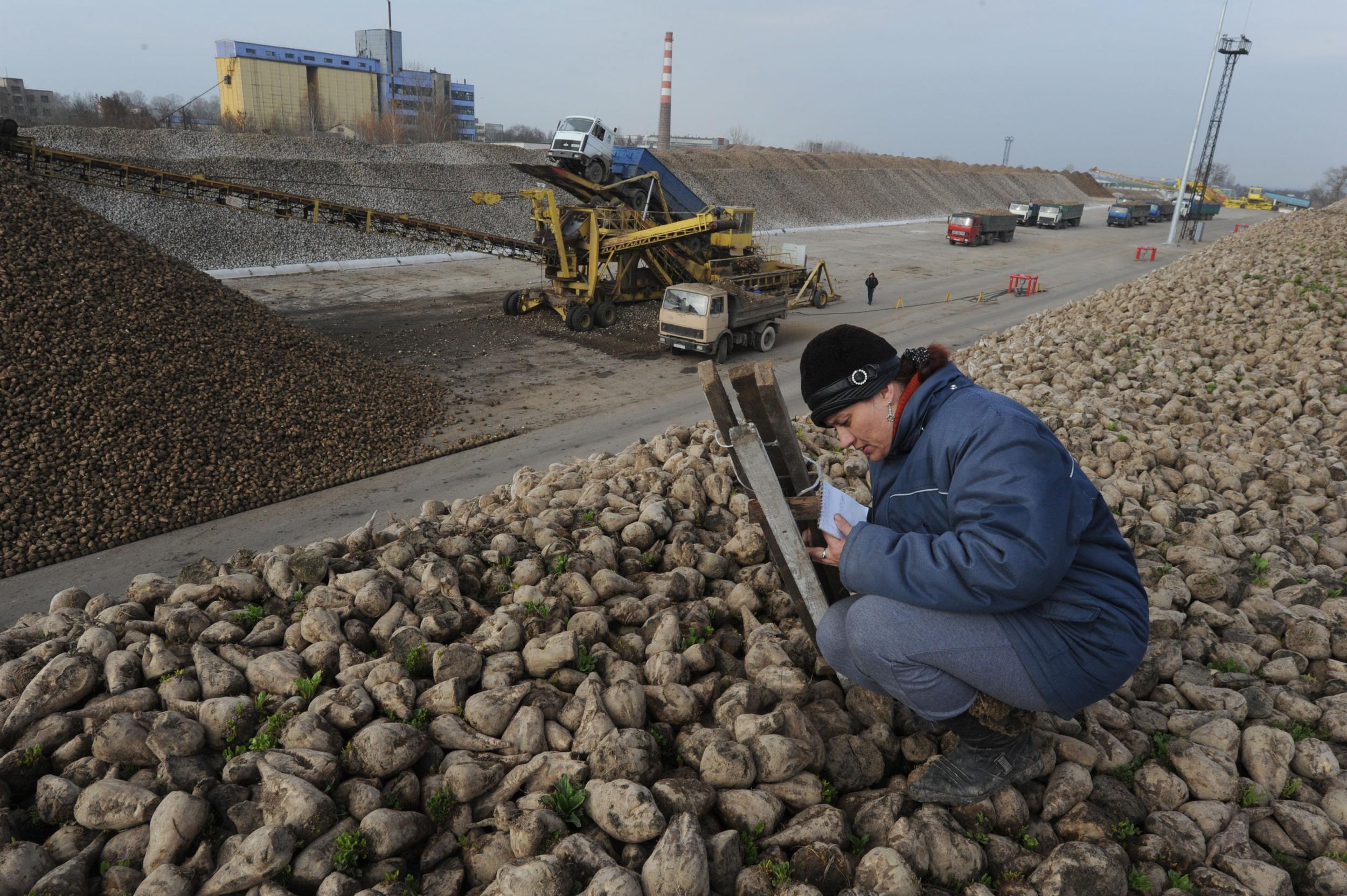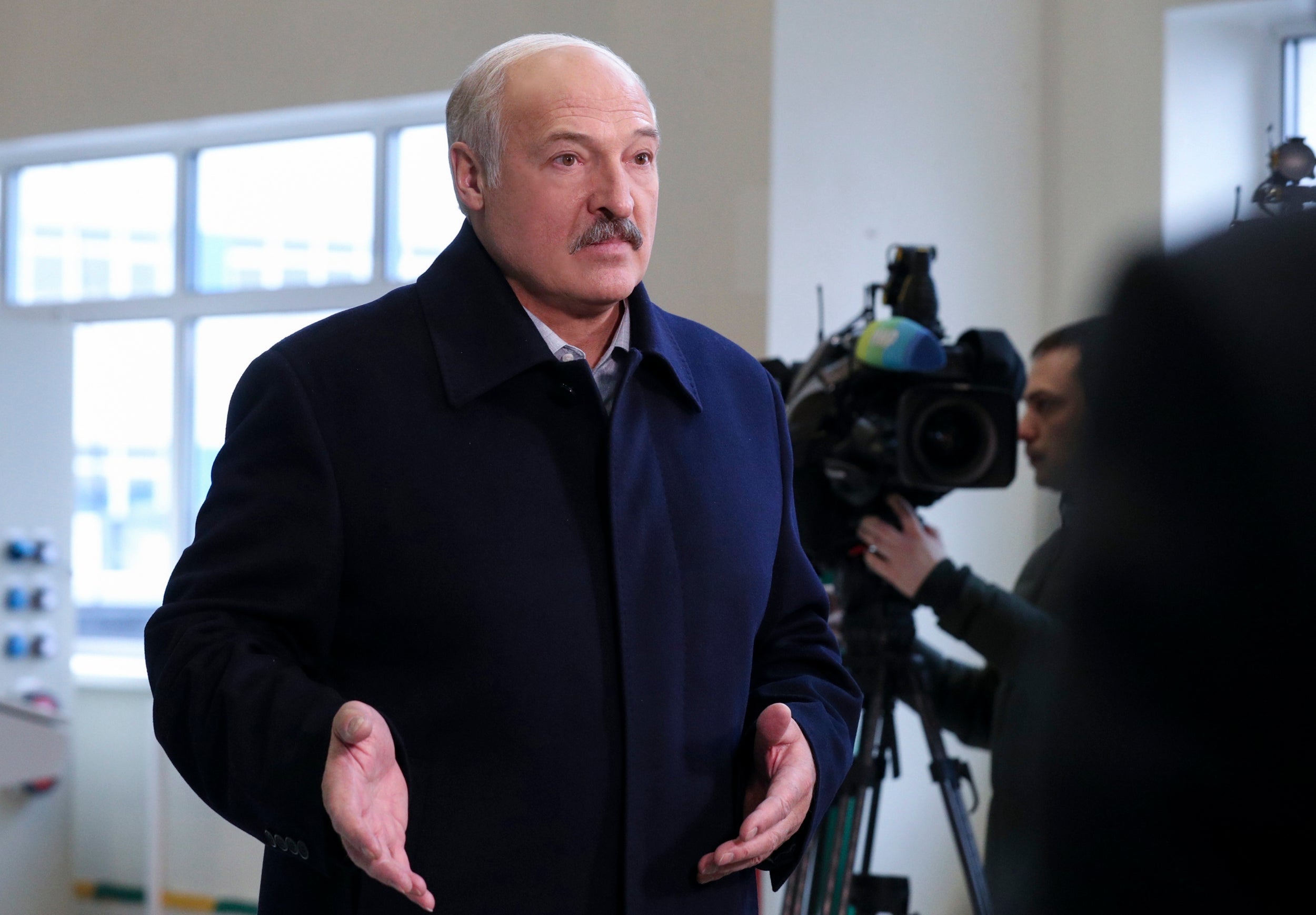Abductions, beetroot and the KGB: Belarus rocked by great sugar mystery
Oliver Carroll investigates why all four managers of Belarus’s sugar factories mysteriously disappeared


Belavia 899 was more than an hour into its scheduled two-hour flight to Munich on 24 January. It had been a largely uneventful experience for the 60 or so passengers on board. Flight attendants had dispensed pasty-looking cheese rolls and even paler coffee, signatures of the airline. Ninety miles from German airspace, the Embraer 175 jet was making good progress towards its destination.
But somewhere above Wroclaw, and without any explanation, the plane performed a 180-degree turn. The pilot only made an announcement to passengers 20 minutes later, with the plane already in full descent. Technical issues meant an unscheduled landing back in Grodno, western Belarus, he said.
The unusual course of events left the passengers bemused and frightened. Was there a bomb on board? If there were mechanical issues, why did the plane not divert to a nearer airport in Poland? The mystery would only continue on ground in Grodno, when a stairway was pushed to the the plane but the crew made no attempt to open the doors.
Ten minutes later, approximately eight law enforcement officers appeared at the front of the aircraft.
“By their age and uniforms, you could tell they were serious senior officers,” one of the passengers, who asked to remain anonymous, told The Independent. “One of them said he would call out the surnames of passengers and that they should collect their things and disembark.”
Officers picked a total of eight people off the plane, three men and their families.
It was that same day, 24 January, that rumours started to emerge about the disappearance of the top managers of Belarus’s four sugar factories.
Dmitry Yegorov, manager of the Skidzyel plant in western Belarus had vanished – he had been “summoned to Minsk”, his people said. Viktor Mironov, manager of the Zhabinka plant to the south, ditto – he was “not at his desk.” Both Nikolai Prudnik, head of the Slutsk factory in central Belarus, and Mikhail Krishtanovich, head of the Haradzeya plant nearby, were “away on holiday.” A further seven men were reported to have been arrested.
The Independent understands that both Mr Prudnik and Mr Krishtanovich were removed from the Belavia flight.

For those used to life in Belarus, the unexplained disappearances meant only one thing. The men had been taken in by the Belarusian KGB, a security service that still proudly retains the acronym of its Soviet predecessor and several of its practices. Given the order to turn around the plane, the operation was also obviously sanctioned by the country’s long-time authoritarian president, Alexander Lukashenko.
But it took nearly two weeks for Mr Lukashenko to comment on what he described as an "unprecedented" anti-corruption operation.
The first official statement about the case came on 30 January, six days into the mystery. Appearing on state TV, the Minsk chief prosecutor, Alexander Konyuk, acknowledged “rumours” of the so-called “sugar affair.” But the 59-year-old, who shares the same heavy build, moustache and breathy baritone as his presidential boss, offered next to no detail. “We’re talking about fraudulent schemes which our managers arranged with their mostly Russian trading counterparts,” he said.
As much as 90 per cent of Belarusian sugar is prepared for export to Russia. Historically, that has made the industry a lucrative line of business for those close to the trough, and the focus of dramatic battles for control in the 1990s and 2000s. In Belarus, such battles are never entirely even, however, and before long the state was the last man standing. By 2016, the presidential administration had taken control of all four of the country’s sugar factories. There was even talk of monopolising trade of raw materials.
At this point, the sugar trade was a reliable earner for the government in Minsk. Exploiting loopholes within the new Eurasian Union – importing sugar cane without duty, then selling it on without tax within the Union – Belarus had found a way of undercutting the Russian sugar industry in its home market. This caused particular tensions with Moscow, which Minsk argued had gained an unfair advantage. In 2017, Alexander Tkachyov, then Russia’s agriculture minister, blamed Minsk’s “unfriendly behaviour” for 70-80bn rubles, or roughly £900m- £1bn, of losses.
In recent years, the situation has reversed somewhat, with two challenges conspiring against Minsk. First, world sugar prices fell substantially. Secondly, Russian agriculture staged a remarkable renaissance. Bumper harvests of beetroot, a local raw material for sugar, saw Moscow move towards subsistence and even overproduction of sugar. Russian manufacturers soon began to undercut Belarusian suppliers on their own turf.
By 2018, three of Belarus’s four plants were into in the red, and massive state investment in their infrastructure began to look suspect. Minsk reacted by introducing a minimum price for sugar at 1.5 Belarusian rubles, 50p, a kilogram. Experts suggest this had the effect of stabilising the markets, but the longer term trends remain alarming. In the first 10 months of 2019, Belarus exported a total of 252 million tonnes of sugar, earning $102m gross. A year earlier, the figures were 391 and 165 respectively.
Sources within the sugar industry told The Independent that those increasing headwinds, and government budget woes across the board, are the likely reason why authorities homed in on the sugar directors. Tut.by, the independent publication that has followed the case closely, reported that most of the major players in the industry, as well as senior officers in law enforcement, would now face charges of corruption.
When President Lukashenko finally went public with his version of events on Tuesday, he accused the unnamed arrested men of setting up a trading “scam.”
The men sold at below-market prices to a fake Moscow trading house, he alleged, and then took cut of the mark-up when it reached the market in Russia and back in Belarus. They had abused the nation’s trust “in exchange for dozens of the most modern cars, flats, mansions and a huge pile of money."
Mr Lukashenko, a man who likes to joke about his moniker – “last dictator in Europe” – did not touch on the whereabouts of the 11 disappeared men, but gave a hint of the trial that now awaits them.
“Everyone has testified,” he said. “No one has been abused. No one has been beaten. No one has had their hands slammed in the door. They were simply sat down and told to write the truth.”
Join our commenting forum
Join thought-provoking conversations, follow other Independent readers and see their replies
Comments